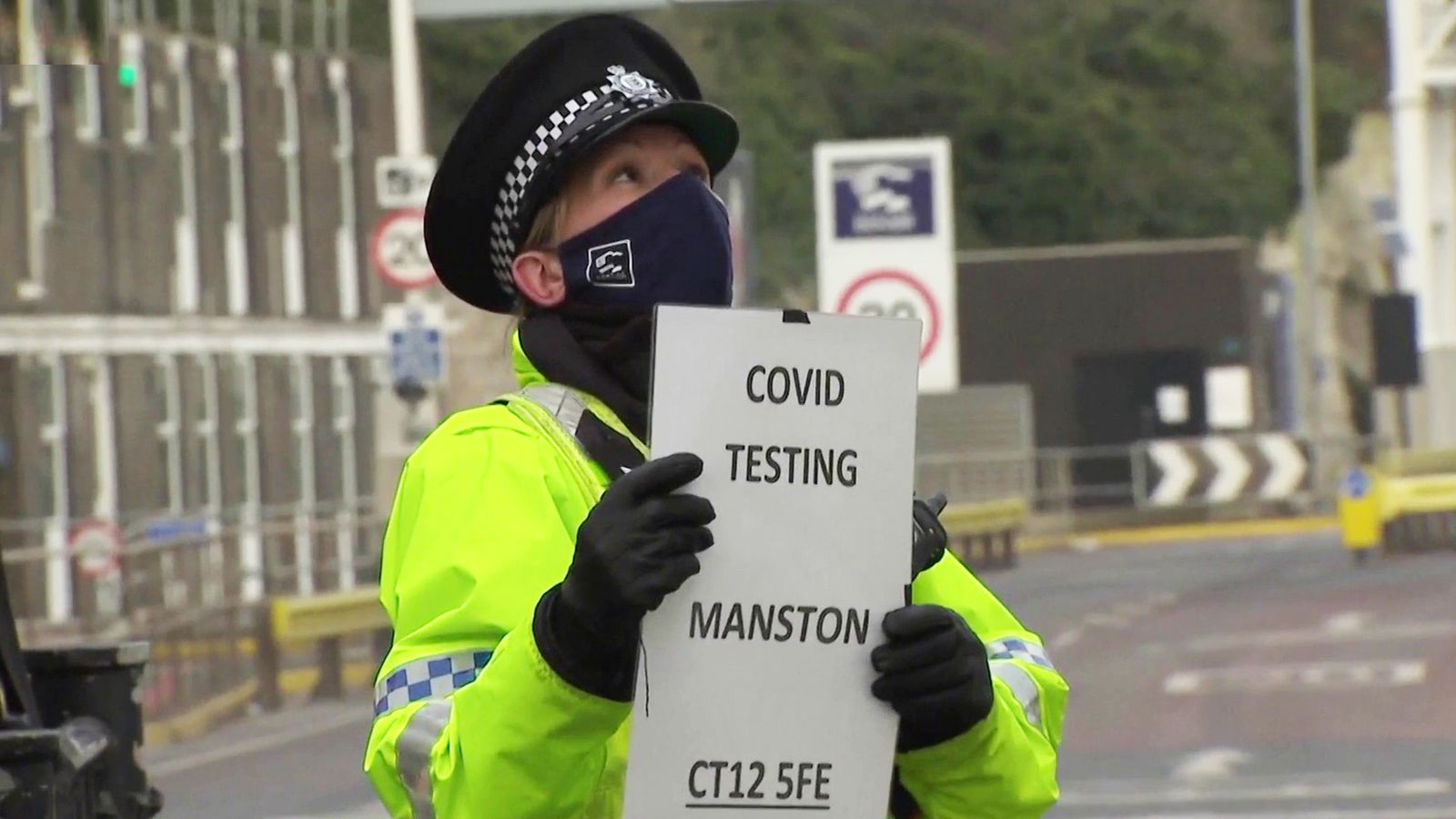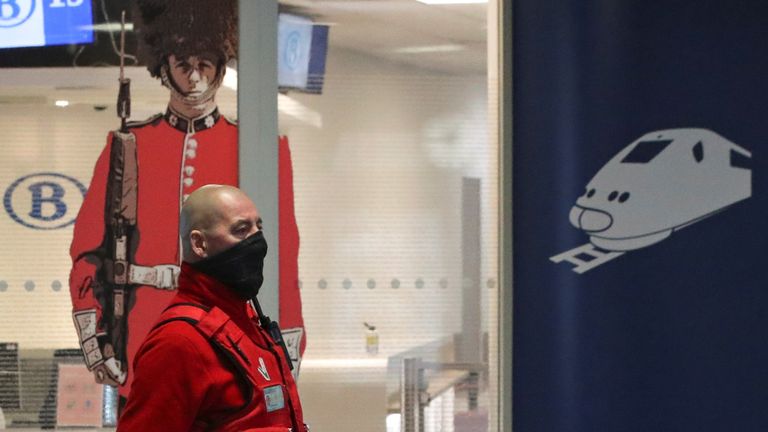France is introducing strict new controls from Monday for anyone entering the country from outside the EU, including hauliers travelling from the UK.
Prime Minister Jean Castex has said a PCR test with a negative result must be produced before entering France.
The insistence on the PCR test, rather than the much quicker, but potentially less accurate Lateral Flow tests which are being provided for hauliers by the British government, could see more delays and queues at Channel ports.
In northern France, there is a real sense of anxiety. The town of Roubaix is in the midst of an intensive programme, which aims to test as much of the local population as possible, over the course of a week.
One test is a familiar check on whether a person is positive or not. But the second is a little more in-depth; the results taking hours rather than minutes.
It is to establish the presence of the new variant of coronavirus, which emerged in the UK and is now seeping into mainland Europe.
In France, as in many European countries, it is known as either the British or English variant.
And it is spreading – clusters have popped up across France, but have also started emerging in other countries.
Spain, for instance, has now seen people testing positive for the variant, even though they have had no link to the UK.
In Roubaix, the tests are being carried out in converted halls around the town.
As we watch people come in and out, you can see the signs of how life used to be – the stage is now hidden behind medical screens. The bar now supplies coffee to the staff. Above us, the theatrical lights that have long since been turned off.
Roubaix was hit badly by the pandemic a few months ago and the fear of a resurgence is clear.
Jean-Philippe Dancoine is a doctor in the town, and also the deputy mayor. He told me that Roubaix was tired and “very worried about the future”.
“The more we look, the more we will find of this variant,” he said.
“I don’t think people are fully aware yet of the danger of the English variant. It’s more contagious, so it will require people to be more careful and be more strict about rules and wearing masks.”
And from him there is, not anger, but disappointment about what he sees as Britain’s lax efforts to contain the virus in recent weeks.
“We can see that the wearing of a mask, and the control measures, have been less strict in Great Britain than in Spain, France or Italy,” he said.
“The behaviour of British citizens has not always been exemplary, perhaps because of their leaders. Here, we are forced to wear a mask – to take measures.”
This is not an isolated comment. There is a sense, among many people I’ve spoken to, that the UK has simply not been as tough as it should have been and that policy has been made too erratically.
In Belgium, for instance, you have to wear masks in many outdoor places but, regardless of the rules, most people wear them everywhere. In contrast to Britain, there was never any plan to change the rules over Christmas.
Marc van Ranst is Belgium’s best-known virologist and a long-standing adviser to the national government.
When I ask him about the growth of what he calls “the British variant”, he is clear in his mind: “I think that part of the explanation for the exponential rise of the virus in the UK is the not-so-clear policies, and relatively relaxed policies, that were leading up to Christmas. They surely did not help. And it explains part of the epidemic.”
Mr Van Ranst said the new variant carried the threat of turning an “epidemic that was getting under control and putting it out of control again”.
For Belgium, a centre of politics and diplomacy, there is a particular issue, with officials regularly travelling to and from both the city, and Belgium.
His suggestion? Tougher restrictions at the borders, greater discouragements to travel, more track and testing and perhaps cuts to Eurostar services between Brussels and London.
“People being able to travel freely is a vulnerability,” he told me, “and it’s probably something that we need to rethink if we’re really going to be serious about trying to halt the British variant.”




